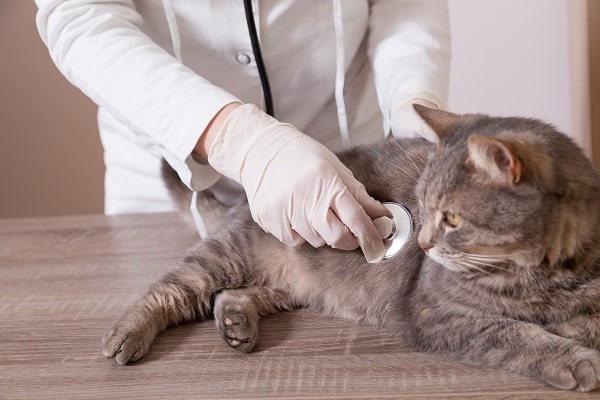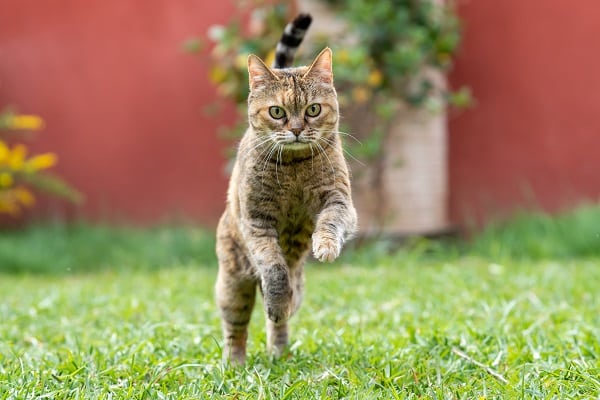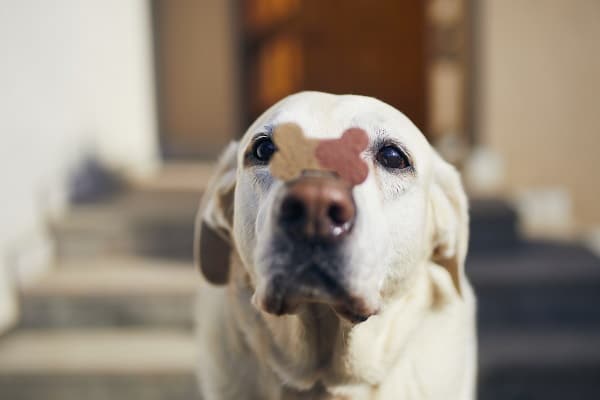In today’s pet-loving society, obesity in pets has become a growing concern. With over 50% of dogs and cats in developed countries classified as overweight, the situation calls for immediate action. Obesity, while seemingly benign, can lead to serious health complications for our beloved companions, including diabetes, heart disease, and shortened lifespan. The essence of this guide lies not in simply managing weight, but in crafting a wholesome, healthy lifestyle that ensures the well-being of pets. Herein, pet owners will find actionable advice and tips on diet, exercise, regular vet checks, and much more, aimed at preventing obesity and enhancing the overall quality of life for their furry friends.
Provide A Healthy Diet

Understanding the nutritional needs of pets is the first step towards ensuring their healthy weight. Different pets require different nutritional compositions, influenced by factors such as their age, breed, size, and overall health condition. For instance, younger pets require diets rich in protein for growth, while older ones may need lower-calorie foods to prevent weight gain. It’s important to scrutinize pet food labels, keeping an eye out for ingredients and nutritional information. High-quality pet food is typically rich in lean proteins, healthy fats, vitamins, and minerals, and low in fillers and artificial additives.
When it comes to feeding pets, portion control plays a critical role. Overfeeding, even with healthy food, can lead to weight gain. It’s essential to follow the feeding guidelines provided on pet food packaging, or better still, seek advice from a veterinarian. They can offer more personalized feeding plans based on the pet’s specific needs and current health status.
Regular Veterinary Check-Ups

Regular veterinary check-ups are vital in maintaining a pet’s healthy weight. A veterinarian can accurately measure a pet’s weight and assess their overall health condition. Any sudden weight gain or loss can be an early sign of potential health issues, including obesity. As such, routine vet visits are crucial for early detection and prompt intervention.
Furthermore, veterinarians can provide invaluable advice on managing a pet’s weight. They can guide pet owners on dietary adjustments, exercise routines, and lifestyle changes that may help prevent obesity. Additionally, certain health conditions, such as hormonal disorders or arthritis, can contribute to weight gain in pets. Veterinarians can diagnose these issues and provide appropriate treatment, thus managing one of the potential root causes of obesity.
Adequate Exercise

Physical activity is a cornerstone of maintaining a healthy weight for pets. Just like in humans, regular exercise boosts metabolism, burns excess calories, and promotes muscle development. Tailoring an exercise regimen to the pet’s breed, age, and health status is key. For instance, dogs might benefit from walks, runs, or playtime in the park, while cats may prefer interactive toys and climbing structures.
However, it’s important not to overdo physical activity, especially for pets who are not used to it or have been sedentary for a while. Gradual introduction of exercise can help prevent injuries and make the transition smoother for the pet. Always monitor the pet’s response to increased activity. Signs of excessive panting, difficulty walking, or reluctance to move may indicate that the exercise regimen is too strenuous and needs to be adjusted.
Limit Treats

While treats can serve as a useful tool for training and bonding with pets, they can also contribute significantly to caloric intake. Many commercially available pet treats are high in sugars and fats, leading to weight gain when given excessively. Replacing these with healthier alternatives, such as fresh fruits and vegetables, lean meats, or even specially-formulated low-calorie treats, can help prevent this issue.
It’s also important to remember that treats should never constitute a significant portion of a pet’s diet. Most experts recommend that treats should make up no more than 10% of a pet’s daily caloric intake. Additionally, offering treats as a reward for good behavior or during training sessions can help reinforce positive habits without leading to overeating or weight gain.
Monitor Weight Regularly

Keeping track of a pet’s weight on a regular basis can help identify any changes that might be indicative of a health issue, such as obesity. Even slight fluctuations in weight can be significant, especially in smaller pets. A home scale or a weight-tracking app can be helpful tools for this purpose.
If a pet’s weight is trending upwards without an apparent reason, it’s time to consult a veterinarian. It might be necessary to adjust their diet, increase their exercise, or investigate underlying health issues. Early detection and intervention can make a big difference in managing a pet’s weight and overall health.
Create An Enriching Environment

An enriched environment stimulates a pet’s mind, helping to prevent behaviors like overeating due to boredom. Interactive toys, puzzle feeders, and regular playtime can keep pets mentally stimulated and physically active. Plus, these tools can slow down eating pace, which aids digestion and promotes a feeling of fullness.
It’s also beneficial to offer opportunities for pets to exhibit their natural behaviors. For dogs, this could mean providing chew toys or organizing play dates with other dogs. Cats might enjoy scratching posts or watching bird feeders from a window. These activities can keep pets engaged, reducing their tendency to overeat and assisting in weight control.
Special Considerations For Senior Pets

As pets age, their dietary and exercise needs may change. Older pets often have slower metabolisms and may not be as active, increasing their risk of weight gain. It’s essential to adjust their diet and activity level to match their changing needs. For instance, senior pet food formulas are typically lower in calories and higher in fiber, and a veterinarian might recommend gentler forms of exercise like short walks or light play.
Additionally, senior pets are more likely to develop health conditions that can contribute to weight gain, such as arthritis or hormonal imbalances. Regular vet check-ups become even more critical during these years to monitor for such conditions. Treatment or management of these health issues can help in maintaining a healthy weight for senior pets.
The Bottom Line
Achieving and maintaining a healthy weight in pets involves a blend of balanced nutrition, regular exercise, mental stimulation, and regular health check-ups. Each pet is unique, and what works for one might not work for another. Thus, understanding individual pet needs and tailoring a weight management plan accordingly is crucial. An ongoing commitment to pet health is preventing obesity and ensure that pets live long, happy, and healthy lives.